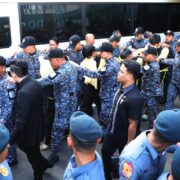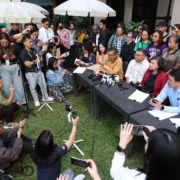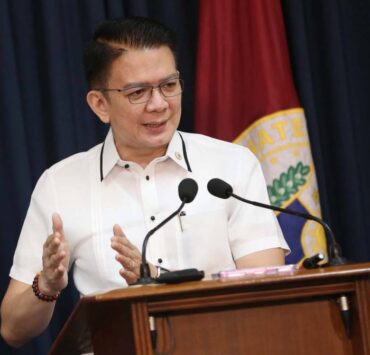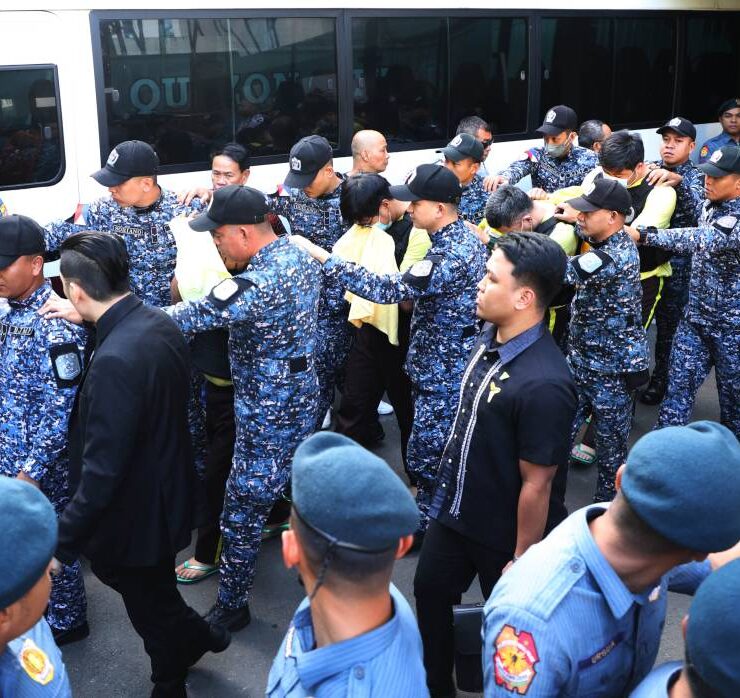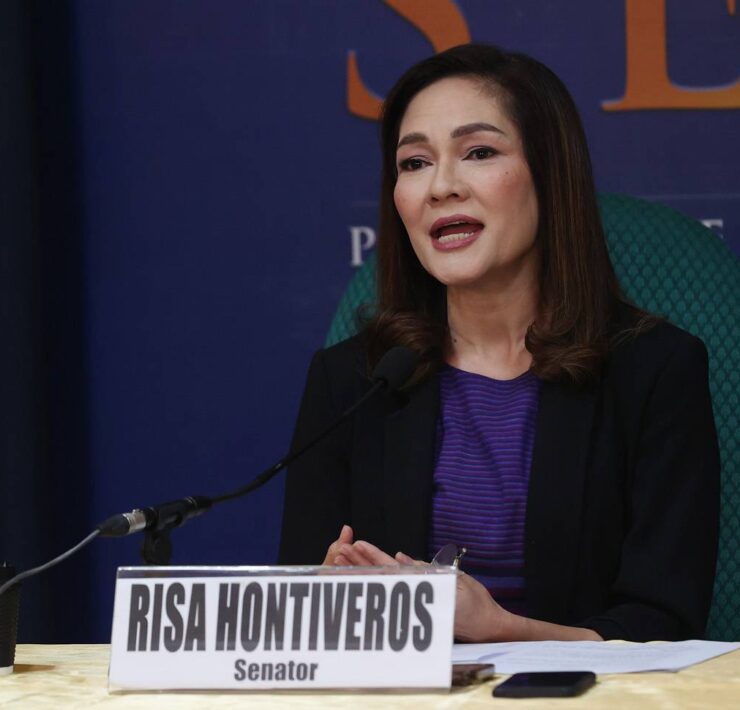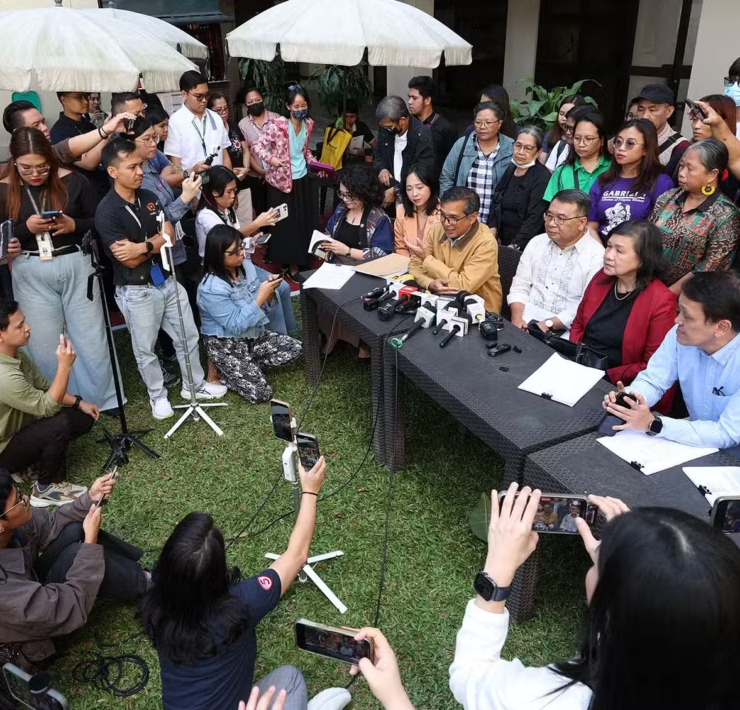Marcos to Torre: Clean up ranks, restore trust
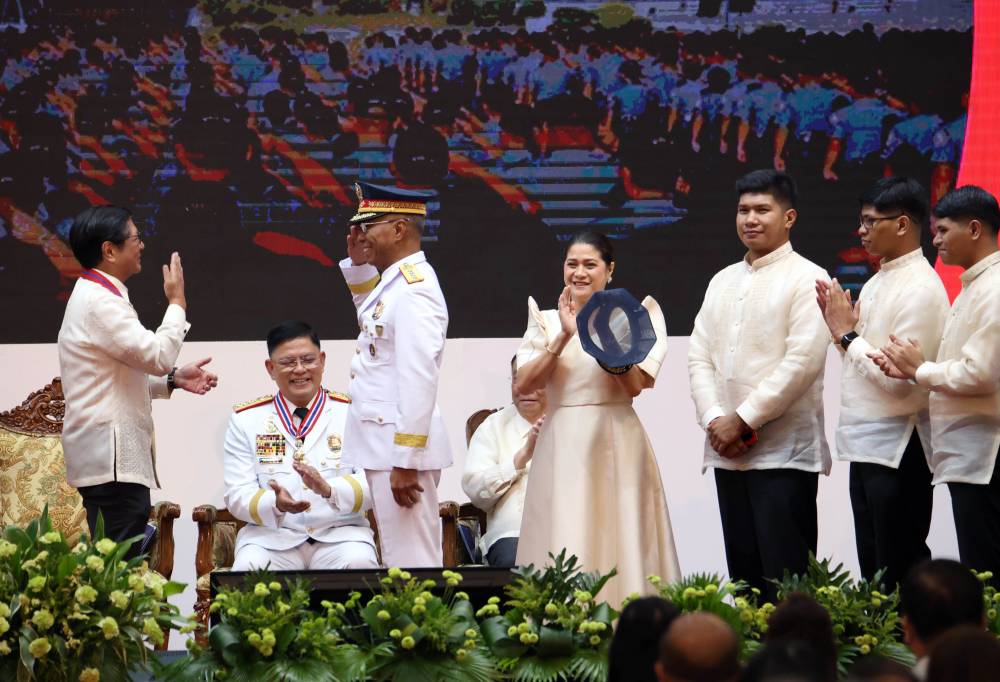
President Marcos on Monday called on newly appointed Philippine National Police chief Gen. Nicolas Torre III to “clean up the ranks” and restore public trust by ensuring swift accountability for erring police officers.
Speaking at the PNP change of command ceremony at Camp Crame in Quezon City, the President also urged the country’s police force to maintain a visible presence on the streets.
“This is my challenge to you: Keep the ranks of our police officers clean and honorable,” Marcos told Torre, who formally assumed leadership of the PNP from outgoing chief, Gen. Rommel Francisco Marbil.
“Speed up the investigation of cases against police officers who violated the law so that we can deliver justice as soon as possible,” the President noted.
Mr. Marcos issued the directives as he acknowledged that the PNP organization faces evolving challenges, including transnational crimes, cyberthreats, extremist violence, and even police misconduct.
He urged Torre to lead the 230,000-strong police force into one that “acts with precision, responds with compassion, and stands as a pillar of accountability.”
Campaign vs illegal drugs
The President called for intensified foot and mobile patrols to reassure citizens and deter criminality, adding that every police officer should be a dependable presence, especially in crime-prone areas.
“Whenever our people need them, police officers must be ready to respond immediately,” he pointed out. “Let’s make Filipinos feel that there are police officers who are ready to sympathize and defend them at all times.”
Mr. Marcos also reminded the PNP about the government’s drive against illegal drugs, instructing police officers to work closely with the Philippine Drug Enforcement Agency to apprehend both high-profile and small-time drug traffickers. (See related story on this page.)
“Let us keep on conducting drug seizures and ensure that drug dealers and drug lords are prosecuted… so that even small-time drug dealers will not go unpunished,” he said.
He also reminded police officers to avoid using their position for personal gain and instead become “instruments of justice, peace and progress.”
“Let your badge be your daily pledge—not to command—but to serve with integrity,” the President said. “May the PNP become a source of hope and reassurance to every community that you protect.”
Mr. Marcos credited Marbil for leading a more people-centered and structured PNP, citing his role in disaster response, public safety, and ensuring credible elections.
Under Marbil’s leadership, the PNP “restored the people’s confidence in the uniform that the police wear,” he said.
Public perception
One of the challenges that Torre seeks to address is the public perception of increasing crime rates.
The new PNP chief has vowed to convince the public that crime rates are low in the country.
His predecessor had previously blamed social media and misinformation for creating the impression that crimes were worsening.
“That is the current challenge, which is really big—the possibility that no matter what we say, it can be skewed and take on a different meaning,” Torre said in a press briefing after taking command of the PNP.
“On our end… we’ll find a solution: We’ll convince you that the crime rate is going down,” he added.
In a speech shortly after stepping down from the PNP chief post, Marbil reported that overall crime volume decreased by 3.57 percent and index crime dropped by 10.35 percent from April 2024 to April 2025.
“You will feel this, see this, and you will really live it and see in your surroundings that you will feel safe, crime is going down, and you’re better off in your disposition as opposed to the rumors that there’s a crime wave or what,” Torre said.
First civilian head
In Congress, Senate President Francis “Chiz” Escudero on Monday called Torre’s appointment a historic fulfillment of a decades-old law mandating civilian leadership of the police force.
In a press briefing, Escudero noted that Torre is the first graduate of the Philippine National Police Academy (PNPA) to lead the PNP, marking a full realization of Republic Act No. 6975, or the Department of the Interior and Local Government Act, the 1990 law that restructured the country’s police force from military to civilian character.
“General Torre is the very first PNPA graduate who will serve as PNP chief in the history of our country. And with his appointment, the provision of this 35-year-old law was finally fully implemented,” he said.
Prior to Torre’s promotion, all other PNP chiefs were graduates of the Philippine Military Academy.
“This is the first time that a President has done that, and now by chance, a senior PNPA officer has reached the rank and is qualified to become PNP chief,” he added.
“He now has the burden of proving that it is only right for the police force to function as civilian in nature and not military in nature,” said Escudero.
Torre, a member of the PNPA “Tagapaglunsad Class” of 1993, is the 31st chief of the PNP. —WITH REPORTS FROM TINA G. SANTOS AND JASON SIGALES




